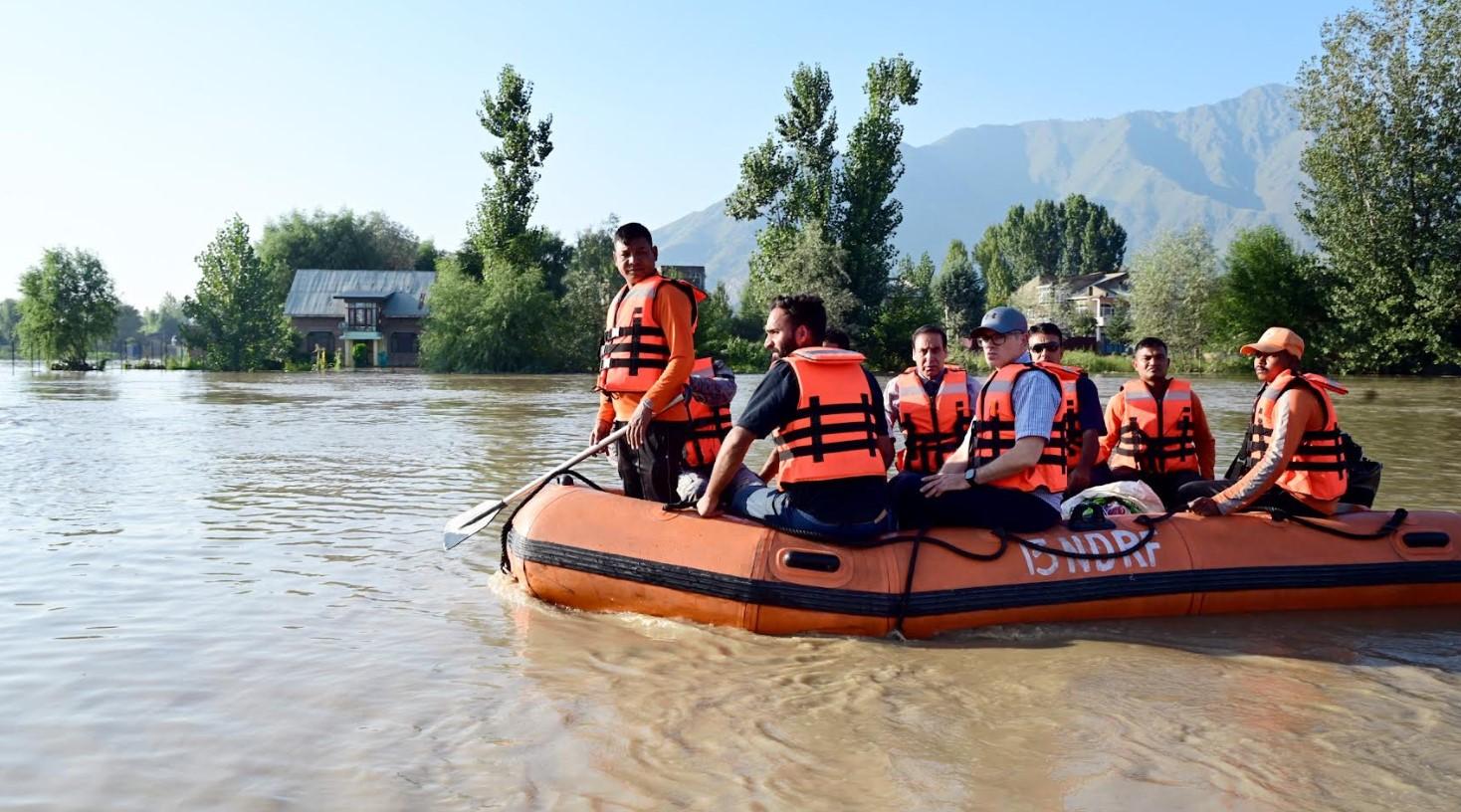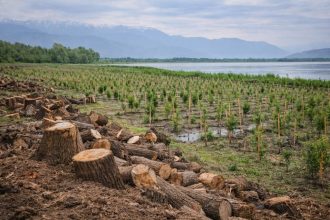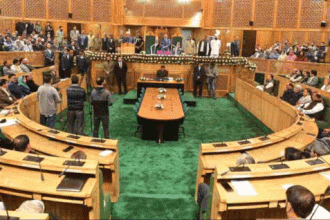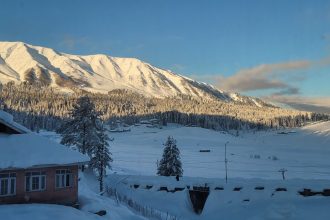Srinagar | September 4, 2025 — In a powerful, emotional address from the flood-hit region of Shalina near Lasjan, Jammu & Kashmir’s Chief Minister Omar Abdullah voiced the deep frustration and anguish of thousands. As neighborhoods in Srinagar and surrounding districts grapple with a flood-like situation once again, CM Omar laid bare the painful truth: this could have been avoided.
“We’ve wasted 11 crucial years,” Omar said, standing in ankle-deep water, surrounded by displaced residents. “Had the authorities taken timely steps after the 2014 floods—especially proper dredging of the River Jhelum and its flood channels—this suffering could have been prevented.”
The Chief Minister was not simply pointing fingers. He was echoing what many Kashmiri families have been feeling for over a decade—abandoned by a system that should have learned from past disasters.
“People should not have to flee their homes, live in fear, or park their cars on flyovers hoping they’ll be safe from rising waters,” Omar emphasized. “Negligence has a cost—and the people of Kashmir have been paying it year after year.”
Following the 2014 catastrophe, a relief and restoration package had been promised, including comprehensive dredging efforts to increase the river’s capacity. But now, standing on soaked ground, Omar confessed what residents feared: “It seems those promises remained on paper. Eleven years have passed—and nothing meaningful was done.”
This time, however, CM Omar assured people that things will change. He announced an immediate high-level review of flood mitigation efforts carried out—or neglected—in the last decade. The goal? Ensuring that no Kashmiri family is left to fend for themselves in future rain spells.
Despite the grim circumstances, the Chief Minister was clear: Srinagar city has been spared widespread flooding this time, thanks to quick action. Yet places like Kulgam have borne the brunt—suffering heavy financial losses, particularly in farmlands on the brink of harvest.
“Rainfall is in Allah’s hands, but devastation caused by that rainfall is preventable,” Omar said. “We’ll demand answers and we’ll act.”
He also called on the central government to expand its relief assessment teams—already inspecting damages in Jammu districts—to include the worst-hit areas in Kashmir. “I will write to Hon’ble Home Minister Shri Amit Shah requesting that the same team visit Anantnag, Kulgam, Srinagar, Budgam, Ganderbal, Baramulla, Bandipora, and beyond.”
Earlier in the day, the CM visited several affected areas by boat, directly witnessing the damage and engaging with local residents. His empathy was evident. “The priority right now is to rescue, shelter, and restore. Medical camps, clean drinking water, and food supply must reach every single family,” he instructed local officials.
He emphasized the need for more boats to evacuate stranded livestock, and ordered the setting up of temporary shelters, equipped with basic facilities.
In a heartfelt moment, he turned to the crowd and said, “We thank Almighty Allah that there has been no loss of human life. That is our biggest relief today. But we owe our people more than just survival—we owe them security, dignity, and action.”
The Chief Minister’s visit was accompanied by Deputy Chief Minister Surinder Kumar Choudhary, top advisors, local MLAs, and senior bureaucrats who have now been directed to operate in full emergency mode.
As Kashmir looks ahead, the urgency is clear: this must not happen again. The people deserve better—and finally, they might just get it.








